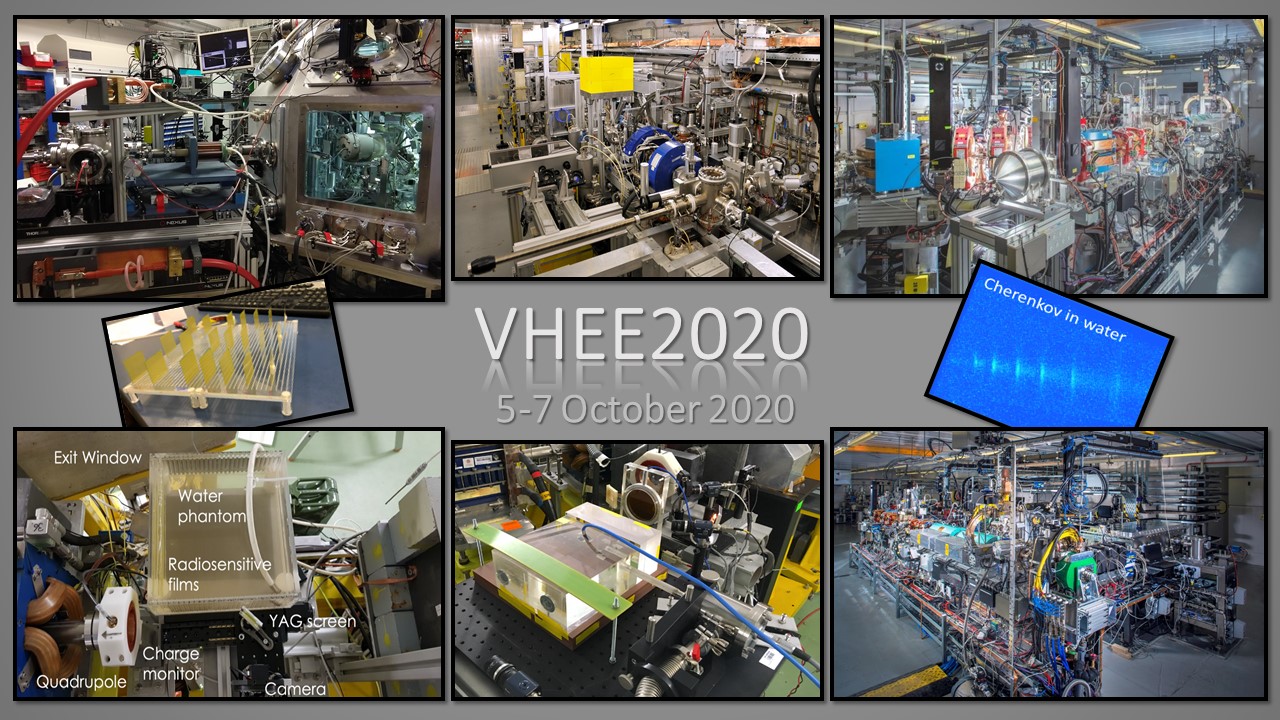VHEE2020
Establishing innovative treatment modalities for cancer is a major 21st century health challenge. Although accelerated electrons are widely used to generate X-rays for radiotherapy, electrons are less frequently used directly because low energy electrons have limited penetration range and are mostly for the treatment of superficial tumours and thus limiting their clinical applicability.
Recently, studies involving ultra-high dose rate (mean dose rate above 100 Gy/s) delivery of ionizing radiation, termed FLASH radiotherapy (FLASH-RT), have uncovered some unexpected but possible therapeutic benefits caused tremendous excitement in the radio-oncology field. Data appear to show that FLASH-RT affords significant normal tissue sparing without compromising tumour control.
In addition, the idea of investigating the use of very high-energy (50-250 MeV) electron (VHEE) beams for RT has gained interest, since electrons with higher energies can travel deeper into the patient. The advantages of this very high-energy electron therapy (VHEE) are that the depth – dose profile from the electrons is flatter than the quasi-exponential dose given by X-rays, and in addition – in principle – the delivered electrons (which are charged) may be focused and steered in ways that are not possible for X-rays. The challenge until recently has been the difficulty in obtaining high-energy electrons using compact machines. This can now be overcome either with high-gradient cavities or by using laser-based acceleration.
Therefore, it is highly timely to have a follow up meeting to VHEE 2017 https://www.cockcroft.ac.uk/events/VHEE17/
The list of topics to be explored are:
- State of the Art;
- Mechanism and Innovation for FLASH RT;
- New indications and hot topics;
- Facilities description: current and planned, e.g. exploitation and use of the existing facilities CLEAR, CLARA, ELBE, PITZ;
- Demonstrate capability of conventional RF acceleration techniques including SC for VHEE RT applications;
- Overall VHEE compact machine design including costing;
- Dosimetry and Detectors;
- Treatment Planning, Modelling and Imaging;
- Accelerators R&D and Technologies for medical treatment, e.g. novel acceleration techniques;
- Industrial panel for medical technologies and plans;
- Where are we going? Which experiments/facilities are needed?
The sessions will be fully remote. The video details will be communicated one week before the meeting.
For organisational purposes, you are kindly requested to REGISTER to this event using the form on the left menu.
Data Privacy Protection Policy : OC no.11 - Privacy Notice




